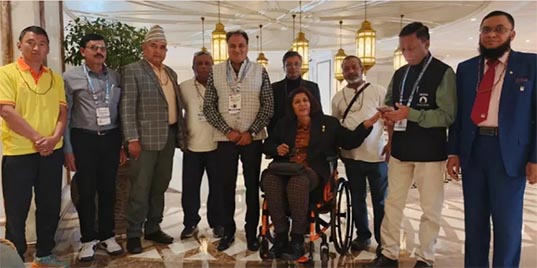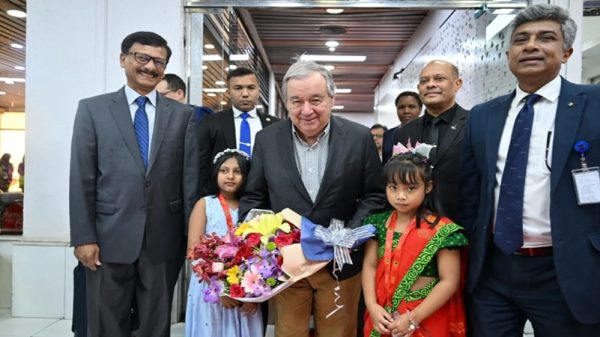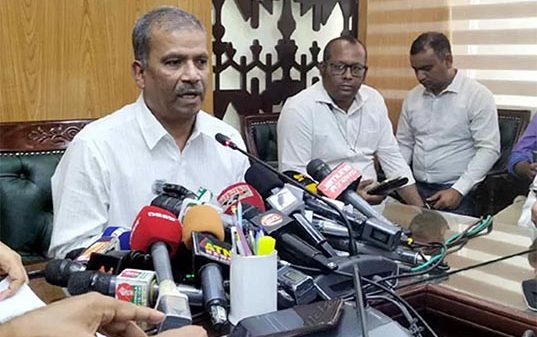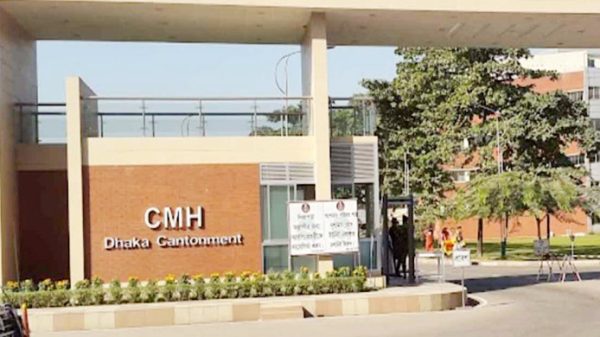A unique successful initiative to combine research and extension in agricultural science

- Update Time : Monday, 17 April, 2023, 09:36 pm
- 196 Time View

The Daily Morning Voice Online Desk : Introduction : Two issues that are still of concern to extension workers in increasing aquaculture production are : (1) obtaining adequate quantities of improved fish fry, and (2) ensuring the supply of good quality fish feed at the same time. National Agricultural Technology Project or NATP-2, one of the biggest projects of the Bangladesh government, is working to improve the situation in both fields. Efforts to increase production of genetically improved chickpeas over the past decade have been one of the most successful initiatives. Since the last year 2017-18, this special program under the project has been progressing successfully with a concerted effort of research and extension. The initiative involved research by BFRI (Bangladesh Fisheries Research Institute, Mymensingh, Bangladesh) and extension (Project Implementation Unit on behalf of the Department of Fisheries, (Fisheries Unit).A comprehensive framework is needed to effectively deliver the technologies invented/discovered in the country’s research centers including universities to the farmers’ doorsteps. BFRI and Department of Fisheries have been involved in creating this structure. The program was initially initiated by the BFRI through the production of germplasm from brood of improved varieties of Vietnamese kai and pangas and ‘gift’ tilapia. The project implementation unit is collecting it and rearing the germplasm in 4 farms designated by the Department of Fisheries to produce brood.
Aim : To produce high quality seedlings from these broods and distribute them to the farmers. Surplus brood is also being collected by interested individual-owned hatcheries. When the first phase of this successful program for the production of advanced breed of fish fingerlings in research-extension link was completed in June 2020, it was resumed in July 2021 through a new agreement between the Directorate of Fisheries and the Research Institute. Joining the aforementioned fish in this new journey is Bangladesh’s well-known, but currently scarce, fish Kalbaus. In place of the earlier 4 fisheries department farms, the operation is now being carried out on a larger scale, in 5 farms.
OBJECTIVES OF THE JOINT VENTURE : The objectives of this joint research and extension program are twofold: firstly to meet the demand of one of the most important components of fish production in the country by increasing the production of high-quality fry, and also to carry out research (technology innovation and development) and extension ( (delivering fish fry to farmers’ doorsteps) to strengthen joint activities so that it can be considered as a fundamental and effective basis for increasing production.By expanding this effective base, it will be possible to transform the fisheries sector into a technology-based sustainable resource.
Achievements : 4 Lakhs of qualitatively improved fry of Vietnamese Kai and Pangas and ‘Gift’ Tilapia using germplasm produced under the project initiative have been distributed in the last three years. As a result, an average of about 2,000 farmers have directly benefited due to increased production from improved cultivars. Pangas fish, especially Vietnamese pangas, are in high demand in foreign trade. It has also gained acceptance in the country. Kalbaus is another popular rice-type fish in Bangladesh. It is now not found in canals or rivers like it used to be. In order to increase its number, the process of producing fry from brood fish produced by collecting germplasm from BFIR and cultivating it in the Department of Fisheries farm is currently underway. It is expected that by June 2023, fry will be produced from this reared fish brood and reach more number of fish farmers and more quantity will be available in the market to satisfy the taste of Bengalis. Conclusion : This concerted effort in research and extension to continue the Bengali conquest of fish and rice has already proved fruitful. There is no alternative to such initiative to protect the purity of not only these four fish, but also qualitatively all cultivated fish. In terms of ensuring the sustainability of such joint ventures, the country hopes that the project will continue its efforts relentlessly and meet the expectations of the country to meet the growing demand for fish.










